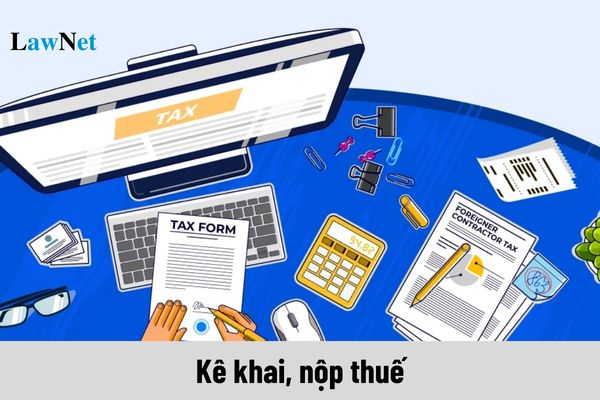When are business establishments not required to declare or pay taxes in Vietnam?
When are business establishments not required to declare and pay taxes in Vietnam?
According to the provisions of Clause 7, Article 5 of Circular 219/2013/TT-BTC (supplemented by Clause 1, Article 3 of Circular 119/2014/TT-BTC), business establishments are not required to declare and pay taxes in the following cases:
- Contributing capital in assets to establish a business. The assets contributed to the business must include: a capital contribution minutes for business production, a joint venture, and affiliate contract; minutes of asset valuation by the capital receipt committee of the contributing parties (or a valuation document by an authorized valuation organization according to the law), accompanied by a dossier on the origin of the assets.
- Transferring assets between dependent accounting units within a business; transferring assets during the division, separation, consolidation, merger, or conversion of business type.
Assets transferred between dependent accounting member units in a business; assets transferred during the division, separation, consolidation, merger, or conversion of business type, the business establishment with the assets transferred must have a transfer order, accompanied by a dossier on the origin of the assets and is not required to issue an invoice.
In the case of asset transfers between independent accounting units or between full-fledged legal entity member units within a business establishment, the business establishment with the transferred assets must issue a VAT invoice and declare and pay VAT as prescribed, except for cases guided in Clause 6, Article 5 of Circular 219/2013/TT-BTC.
- Reclaiming from a third party in insurance activities.
- Collections on behalf of others not related to the sale of goods or services of the business establishment.
- Revenue from goods and services received for commission selling and commission earnings from agency activities selling at the prescribed price of the principal, enjoying commissions for services: postal, telecommunications, lottery ticket sales, air tickets, car, train, vessel tickets; international transport agencies; agencies of aviation and maritime services applying a 0% VAT rate; insurance agency sales.
- Revenue from goods and services and agency commission earnings from selling goods and services not subject to VAT.
- Business establishments are not required to pay VAT on imported goods returned by a foreign party. When the business sells such returned goods domestically, they must declare and pay VAT as prescribed.

When are business establishments not required to declare or pay taxes in Vietnam? (Image from the Internet)
How to determine the tax payment date in Vietnam?
According to Article 58 of the Tax Administration Law 2019, the determination of the tax payment date is as follows:
Determination of the tax payment date
1. In cases of non-cash tax payments, the tax payment date is when the State Treasury, commercial banks, other credit institutions, or service organizations deduct money from the account of the taxpayer or the person paying on behalf and recorded on the tax payment document.
2. In cases of direct cash tax payments, the tax payment date is the day the State Treasury, tax administration agency, or authorized collection organization issues a tax collection receipt.
Thus, the tax payment date is determined through non-cash tax payments and direct cash payments as follows:
- For non-cash tax payments, the payment date is when the State Treasury bank or service organization deducts money from the taxpayer's account or the account of the person paying on behalf.
- For direct cash tax payments, the tax payment date is when the tax administration agency issues a tax collection receipt.
What are regulations on location and method of tax payment in Vietnam?
According to Article 56 of the Tax Administration Law 2019, the location and method of tax payment are prescribed as follows:
Location and method of tax payment
1. Taxpayers pay taxes into the state budget as follows:
a) At the State Treasury;
b) At the tax administration agency where the tax declaration documents are received;
c) Through an organization authorized by the tax administration agency to collect taxes;
d) Through commercial banks, other credit institutions, and service organizations as prescribed by law.
2. The State Treasury, commercial banks, other credit institutions, and service organizations as prescribed by law are responsible for providing locations, means, officials, and staff to collect taxes conveniently into the state budget promptly for taxpayers.
3. Agencies or organizations receiving tax money or deducting tax money must issue tax collection receipts to taxpayers.
4. Within 8 working hours from collecting tax money from taxpayers, the agency or organization receiving tax money must transfer it to the state budget. For cash tax collection in remote, isolated, island areas, or difficult areas, the time frame for transferring tax money to the state budget is regulated by the Minister of Finance.
Thus, taxpayers can directly pay taxes at the State Treasury; Tax administration agency where tax documents are received or through an organization authorized by the tax administration agency to collect taxes.
Additionally, tax money can be paid through commercial banks, other credit institutions, and service organizations as prescribed.

